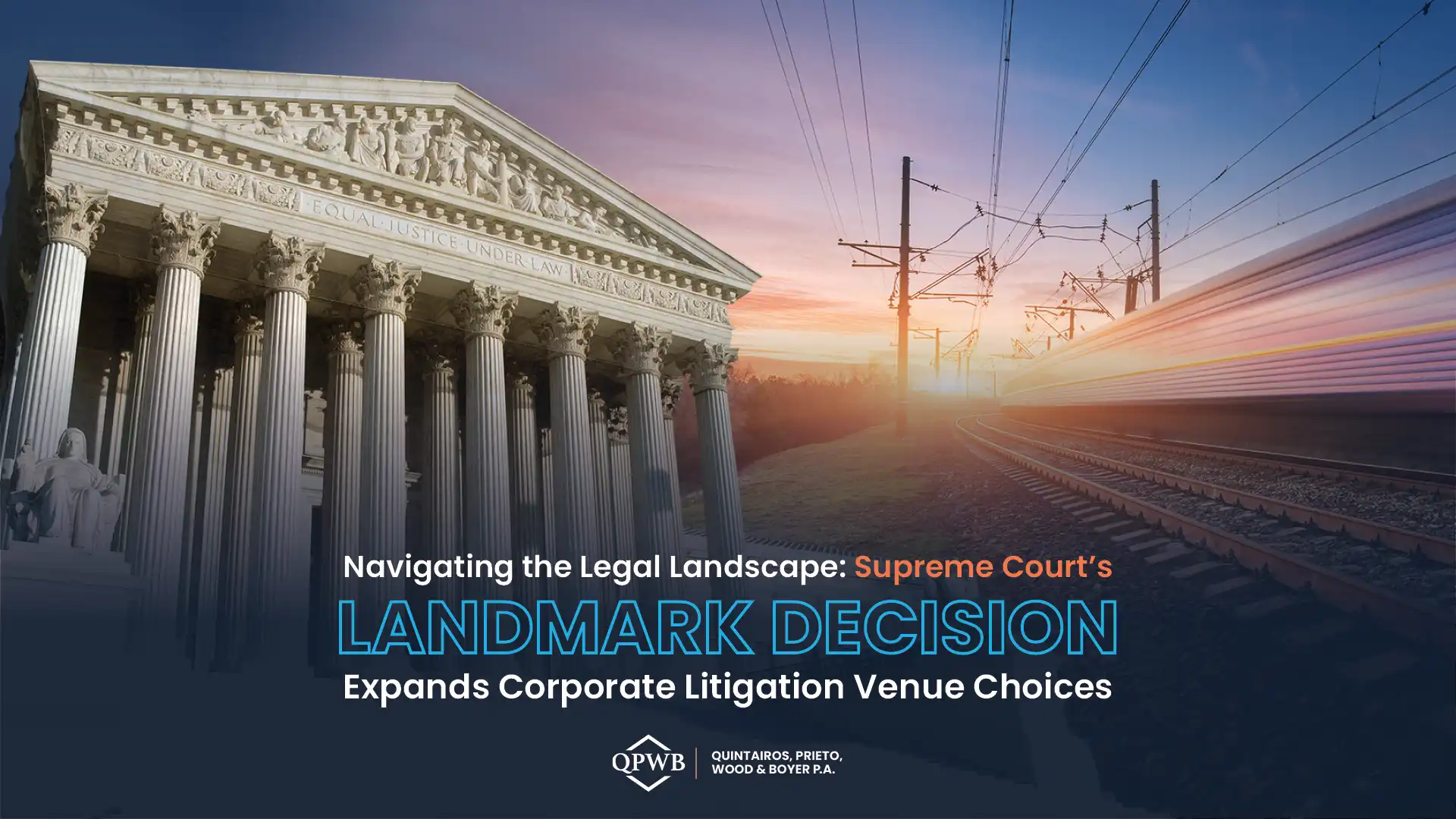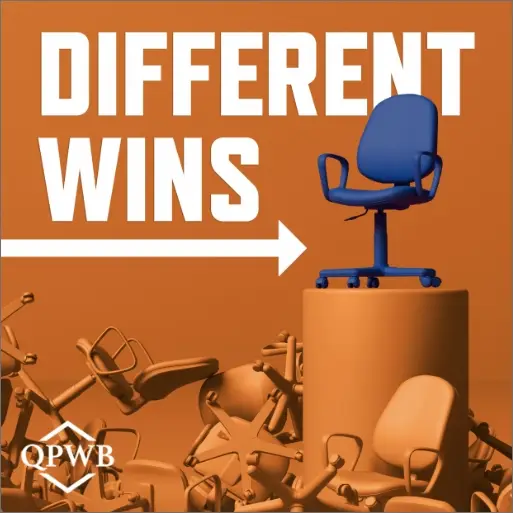15 December, 2023
Navigating the Legal Landscape: Supreme Court's Landmark Decision Expands Corporate Litigation Venue Choices
In: Blog,Client Alert
Comments: 0

Article by Mark Christopher and Kate Diem
In a recent decision, the United States Supreme Court has expanded the ability of litigants to sue corporations in the venues of their choice. In Mallory v. Norfolk Southern Railway Co., an opinion that came out in June of this year, the Supreme Court addressed whether due process prohibits a state from requiring nonresident corporations to consent to personal jurisdiction in exchange for the privilege of being able to do business in that state. A wave of statutes across the United States is causing companies to find themselves subject to personal jurisdiction in states based solely on the basis of the corporation's registration with a forum state to transact business.
In Georgia, for instance, O.C.G.A. ? 9-10-90 defines a "nonresident" corporation as one that is not organized or existing under the laws of the state of Georgia and "is not authorized to do or transact business in" Georgia (i.e., not registered to do business in the State of Georgia) at the time a claim or cause of action arises. O.C.G.A. ? 9-10-91 further provides that a nonresident corporation is subject to the personal jurisdiction of Georgia courts in the same manner that a Geogia resident would be if the out-of-state corporation "transacts any business within" the state of Georgia.
In a plurality decision, the Supreme Court held that these types of statutes comport with the Due Process Clause of the Fourteenth Amendment and allow personal jurisdiction to be established without any contacts with the forum state beyond a simple registration and appointment of a registered agent, raising concerns that companies will now face lawsuits in venues that have nothing to do with the underlying facts.
In any lawsuit, a court must have jurisdiction over the parties to the case. This is essentially the power and authority of a court to adjudicate cases. One essential subtype of jurisdiction is personal jurisdiction, in which a court must have authority over a particular defendant in order to make decisions affecting the rights and obligations of that defendant. In other words, the court must have the authority to cause the defendant to appear in court and to enter a legally binding order affecting the defendant's rights.
A court will have personal jurisdiction over a defendant in the state which is considered the "home" state of the defendant. For a natural person (i.e., an individual human being), this would be the defendant's state of residence. For a corporate defendant, its "home state" is considered (1) the state where the corporation is incorporated and (2) the state in which the corporation's principal place of business is located. A court may also assert personal jurisdiction over nonresident, out-of-state defendants if the nonresident defendant has sufficient "minimum contacts" with the forum state.
To exercise personal jurisdiction over a defendant that is an out-of-state corporation, a court must have both general jurisdiction and specific jurisdiction over such defendant. Specific jurisdiction arises out of the defendant's activities within the forum state, thereby satisfying the "minimum contacts" requirement. General jurisdiction, on the other hand, allows courts to hear any and all cases brought against an out-of-state corporate defendant, including cases arising from activities or conduct unrelated or unconnected with that state.
Today, most states have a law requiring that an out-of-state corporation consent to general jurisdiction--i.e., to be sued in that state--in order for such corporations to register and transact business in that state. The Supreme Court's decision in Mallory v. Norfolk Southern Railway Co., allowing states to force out-of-state corporate defendants to be subject to personal jurisdiction based on their registration in that state, could open the door for plaintiffs to "shop" the most advantageous state to file lawsuits against corporations. Now, it appears that personal jurisdiction can be established even in lawsuits with minimal connections to the forum state, so long as the corporation has registered to transact business in the prospective forum state. For corporations that specialize in transportation and trucking, for instance, this could mean that a plaintiff injured in an accident in a state that is considered less "plaintiff-friendly" may choose to sue in a different state in which a defendant corporation is registered if the plaintiff deems that state to be a more favorable forum.
In light of this decision from the Supreme Court, it will be extremely important for companies to evaluate their registrations in various states, including the prospect of relocating their registered agents to more favorable venues within a state. If you or your company have questions about this recent decision, whether or not relocating your registered agents is advisable in your situation, selecting the optimal venue for your registered agents, or what that process entails, our team at Quintairos, Prieto, Wood & Boyer, P.A. may be able to advise you as to the best strategy and help facilitate any relocation of your registered agents as may be needed.




